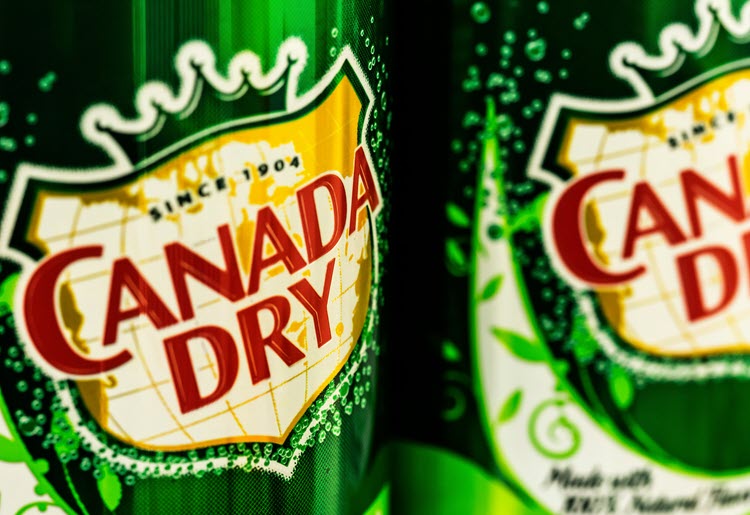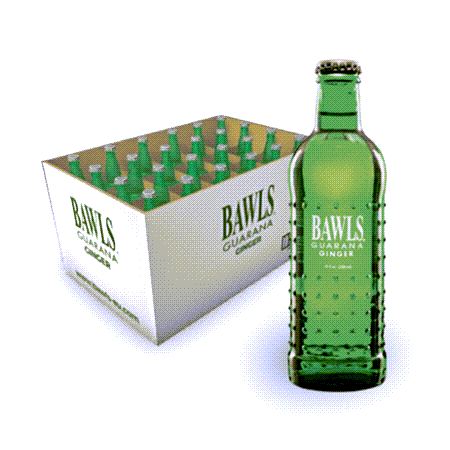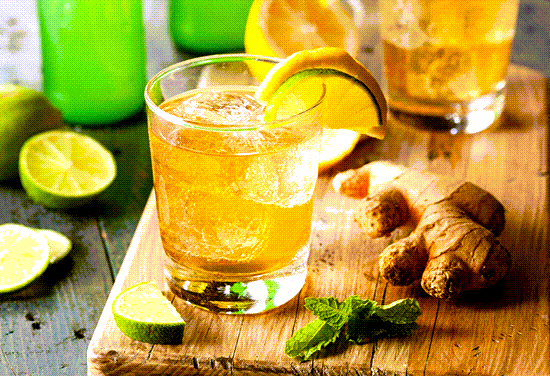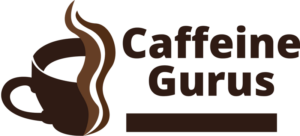If you are concerned about your caffeine intake, you are likely trying to cut down on caffeinated drinks, like coffee and soft drinks. You may have been told that ginger ale is a good alternative and wondered if ginger ale has caffeine.
The quick answer is: most ginger ale beverages are caffeine-free.
However, some ginger ale beverages do contain added caffeine, making it important to check the product label to be sure.
In This Article
Does Ginger Ale Have Caffeine?
As a rule, ginger ale is caffeine free, but some ginger ale beverages contain some caffeine.
For example, Bawls Guarana Ginger Ale lists caffeine in its ingredients on the product label but does not indicate the exact amount of caffeine on the nutritional label.
According to the National Library of Medicine, guarana seeds contain about four times the amount of caffeine as coffee beans. In addition, other natural chemicals in the guarana seeds enhance the stimulant effect of caffeine. Ginger ale, like Bawls Guarana Ginger Ale, which also contains guarana, has some caffeine in the drink.
Also, some diet or sugar-free ginger ales contain small amounts of caffeine, depending on what is used as a sugar substitute. For example, stevia and sucralose (Splenda) contain some caffeine, while aspartame (Equal or NutraSweet) does not.
Which Ginger Ales Have Caffeine?
Most ginger ale does not contain caffeine. However, a few have some caffeine in them. This is more common in the diet, or sugar-free versions as some sugar substitutes, like sucralose (Splenda) and Stevia, contain small amounts of caffeine. Other sweeteners, like aspartame (Equal or NutraSweet) and saccharine (Sweet N’ Low), are caffeine free.
Stevia, an herbal sweetener, also contains about 16 to 20 mg of caffeine per serving.
Two popular Ginger Ale varieties that contain caffeine are:
- Bawls Ginger Ale – 102 milligrams of caffeine
- Ale 8 One Ginger Ale – 44 milligrams of caffeine
It is best to check the product label of diet or sugar-free ginger ale to ascertain whether the beverage contains caffeine. If caffeine is not listed on the Nutritional Facts Label, check the ingredients label, too, as it may be listed there.
While the FDA requires listing caffeine on product labels, it does not require a statement of the amount of caffeine the beverage contains if the caffeine is inherent in one of the ingredients, such as artificial sweeteners, coffee, tea, guarana, or cocoa beans. Therefore, it is up to the consumer to be aware that these items contain caffeine.
Does Canada Dry Ginger Ale Have Caffeine?
Canada Dry Ginger Ale does not contain caffeine in its regular or sugar-free soft drink version. Canada Dry Diet or Canada Dry Zero Sugar Ginger Ale is sweetened with aspartame and does not contain caffeine. Therefore, you can safely drink all versions of Canada Dry Ginger Ale without concerns about your caffeine intake.
Does Seagram’s Dry Ginger Ale Have Caffeine?
Both regular and diet Seagram’s Dry Ginger Ale is caffeine-free. Therefore, they do not contain any caffeine or pose a concern over caffeine intake.
Seagram’s Diet Ginger Ale is now labeled as Seagram’s Zero Sugar Ginger Ale and is sweetened with aspartame. It does not introduce caffeine to the product.
Does Diet Ginger Ale Have Caffeine?
Some diet ginger ale may contain small amounts of caffeine. This is typically because the artificial sweetener contains some caffeine. Sucralose (Splenda) and Stevia both contain some caffeine, typically 16 to 20mg per serving, while aspartame (Equal or NutraSweet) and saccharine (Sweet N’ Low) is caffeine free.
What are the Ingredients in Ginger Ale?
Ginger ale is a carbonated soft drink flavored with ginger root and a sweetener, such as sugar or high fructose corn syrup. Diet or sugar-free versions may be sweetened with aspartame, sucralose, stevia, or another low-calorie sweetener.
Most also contain preservatives such as citric acid and sodium benzoate, and some caramel coloring. Check the container’s ingredient label to determine the ingredients in your ginger ale.
What are the Types of Ginger Ale?
There are three main types of ginger ale.
- Regular Ginger Ale: (Sometimes called Golden Ginger Ale) This beverage contains carbonated water, ginger extract, and sugar or high fructose corn syrup. It may be consumed as a beverage or used in mixed drinks.
- Diet Ginger Ale: Diet ginger ale contains the same ingredients as regular or golden ginger ale, with the exception of the type of sweetener. Sugar or high fructose corn syrup is replaced with a calorie-free sweetener, such as sucralose (NutraSweet), aspartame (Equal or NutraSweet), saccharine (Sweet N’ Low), or Stevia.
- Dry Ginger Ale: Dry ginger ale is lighter than regular ginger ale. It has a mild ginger flavoring and is often less sweet than regular ginger ale.
Frequently Asked Questions
Regular (Golden) ginger ale was developed by an Irish doctor, Thomas Joseph Cantrell, in the 1850s.
Dry ginger ale was later developed by a Canadian pharmacist named John McLaughlin in 1907.
Ginger ale is often presented as a healthy alternative to drinking soft drinks, but this is only partially true. As a soft drink, it carries with it concerns about consuming too much sugar. However, because it is made with ginger root, it always provides some health benefits when drunk in moderation.
- Soothes Upset Stomach
- Reduces Nausea
- Is Caffeine Free
- Provides Some Antioxidants
- May Reduce Inflammation
- May Boost Heart Health
According to Healthline, ginger ale’s beneficial effects are attributed to ginger root’s benefits. But beware…drinking too much ginger ale can lead to weight gain as it is high in sugar content.
Ginger ale containing real ginger root extract is known to ease upset stomachs and combat nausea. It is often recommended when you have the flu or other viruses to ease stomach issues and help prevent dehydration.
Ginger ale is often served in hospitals and care facilities, especially for those with nausea or upset stomachs.
Healthy adults can safely consume up to 400mg of caffeine per day, says Harvard School of Medical Health. This is equivalent to four cups of brewed coffee a day. However, it should be noted that the limit for pregnant women is 200 mg per day.
Even if it contains some caffeine, a glass or two of ginger ale a day will not exceed the maximum amount of caffeine you can safely consume each day.
Ginger ale does not contain caffeine or other stimulating drugs. However, some diet or sugar-free versions may contain sugar substitutes that contain small amounts of caffeine. In this case, diet or sugar-free ginger ale may produce a mild stimulant effect.
Ginger ale containing guarana, such as Bawls Guarana Ginger Ale, does contain stimulants, as guarana seeds contain four times more caffeine than coffee beans.
Always check the nutrition and ingredient label to determine if your ginger ale contains caffeine or other stimulants.
Ginger beer is a non-alcoholic beverage similar to ginger ale. It does not contain caffeine. Ginger beer is spicier than ginger ale. It does not contain sugar or sugar substitutes.
It is always wise to check the nutrition and ingredient labels on the container, as some manufacturers could include additives that contain caffeine.
Knowing which sodas have the most caffeine in them will help you control the amount of caffeine you consume each day. Bear in mind that the following amounts refer to a serving size (typically 8 ounces), a can of soda typically contains 12 ounces, and a bottle may contain 20 ounces.
- Bawls Ginger Ale: 102 milligrams of caffeine
- Coca-Cola with Coffee: 69 milligrams of caffeine
- Pepsi Zero Sugar: 69 milligrams of caffeine
- Ski Soda: 69 milligrams of caffeine
- Mountain Dew Zero Sugar: 68 milligrams of caffeine
Does Ginger Ale Have Caffeine? Final Thoughts
If you have issues with caffeine consumption or are just looking for ways to reduce the amount of caffeine you consume without eliminating soda, ginger ale may be a good solution. Most ginger ale has no or very little caffeine and can be consumed without concerns over drinking too much caffeine.



